ICluster - Build an Imac Cluster
by Hammock Boy in Circuits > Apple
51993 Views, 106 Favorites, 0 Comments
ICluster - Build an Imac Cluster
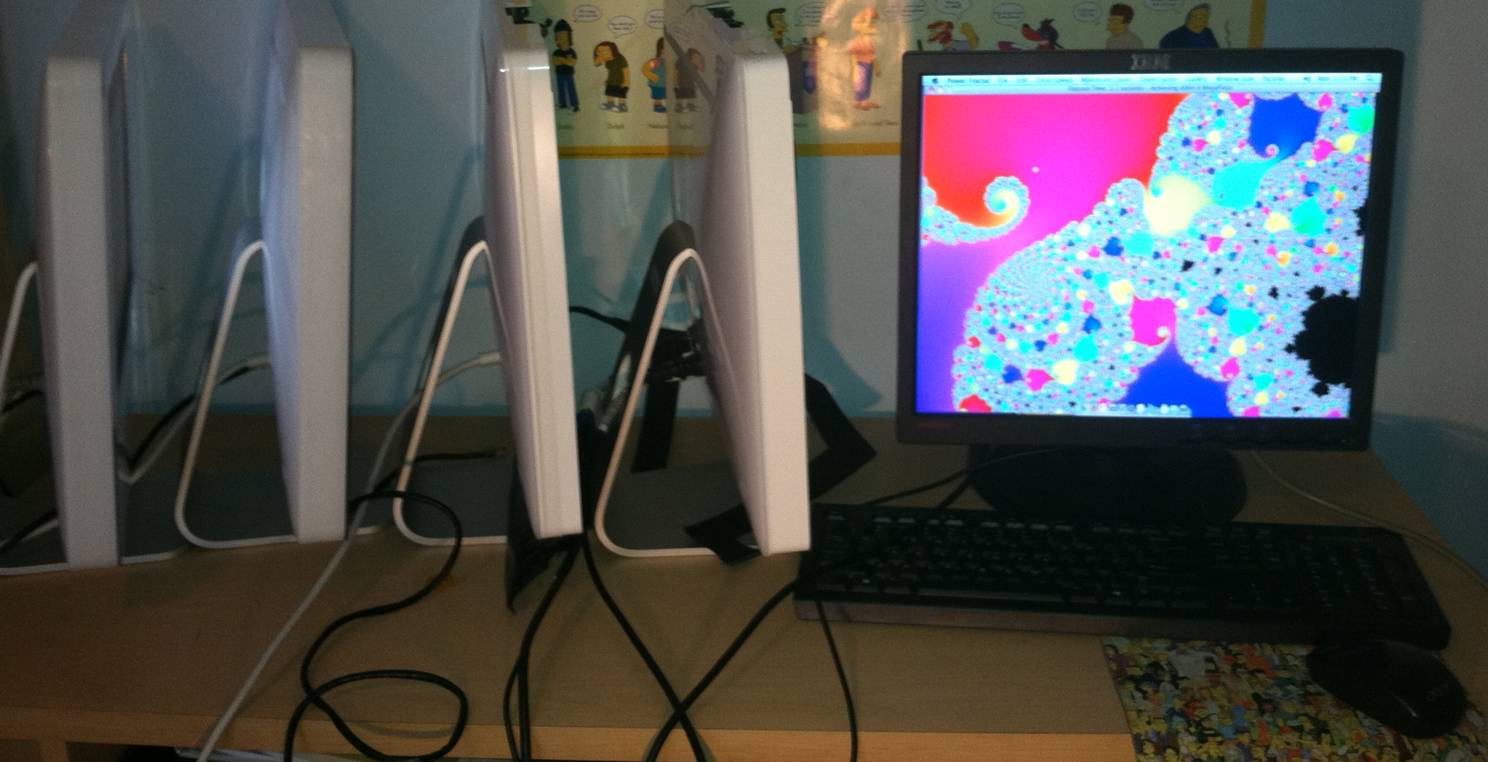
What better thing could you do with 4 imacs than turn them into a cluster?
A cluster, for anyone wondering, in general terms, is a group of connected computers that work together to complete a task.
A cluster, for anyone wondering, in general terms, is a group of connected computers that work together to complete a task.
Materials
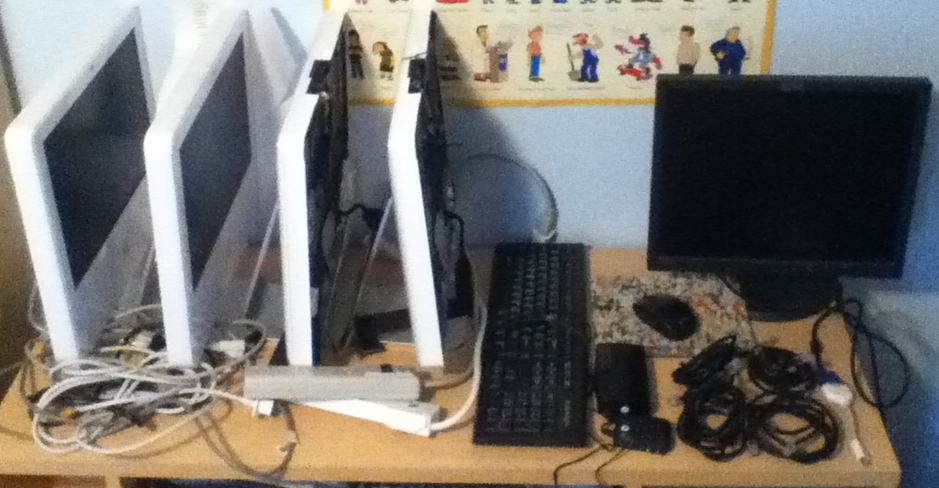
The list is surprisingly short and contains extremely common parts.
4 Apple computers. I used G5 Intel imacs but you can use any Apple computer.
4 Category 5 Ethernet cables
1 10/100Mbps Ethernet switch (minimum 4 ports)
1 key board and mouse
1 USB
In my case, I got all of the imac because they had broken/missing screens. All you need then is a monitor, VGA cable, and VGA adapter depending on the type of port on your Apple.
4 Apple computers. I used G5 Intel imacs but you can use any Apple computer.
4 Category 5 Ethernet cables
1 10/100Mbps Ethernet switch (minimum 4 ports)
1 key board and mouse
1 USB
In my case, I got all of the imac because they had broken/missing screens. All you need then is a monitor, VGA cable, and VGA adapter depending on the type of port on your Apple.
Hardware
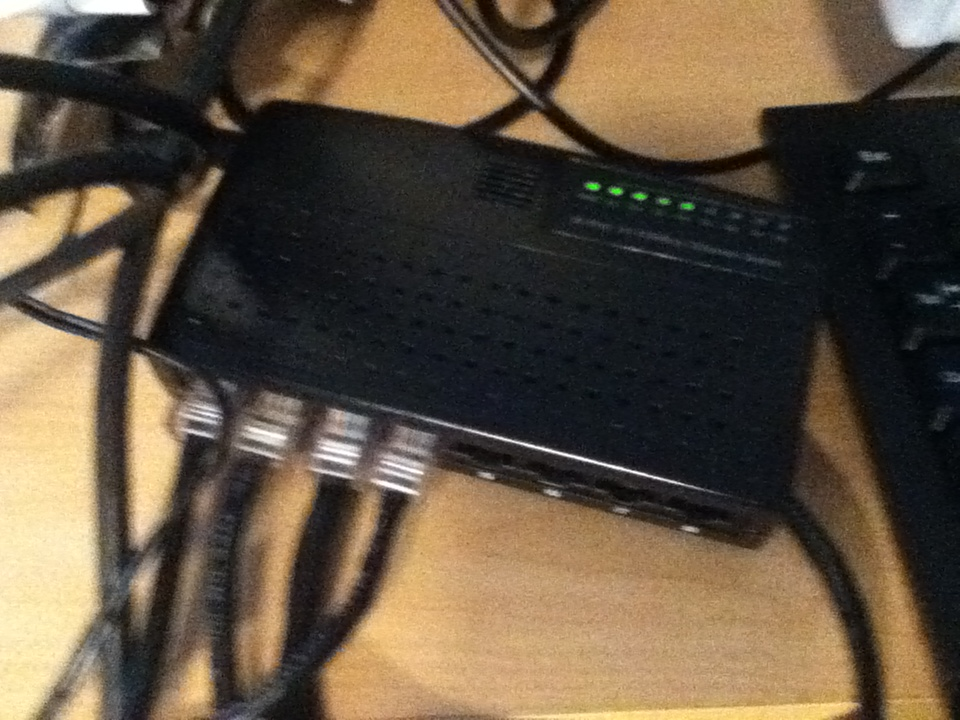
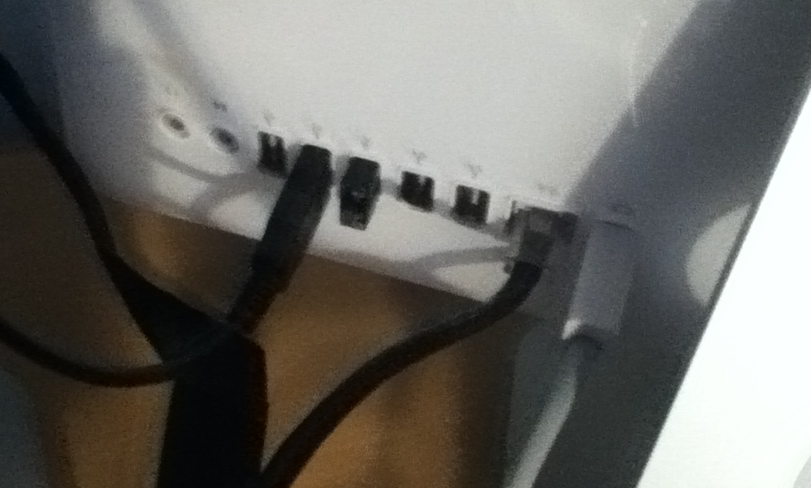
Simply plug one end of each Ethernet cable into the Ethernet switch and then the other end into one of the imacs Ethernet port. Repeat for each imac.
Then power everything up.
Then power everything up.
Software
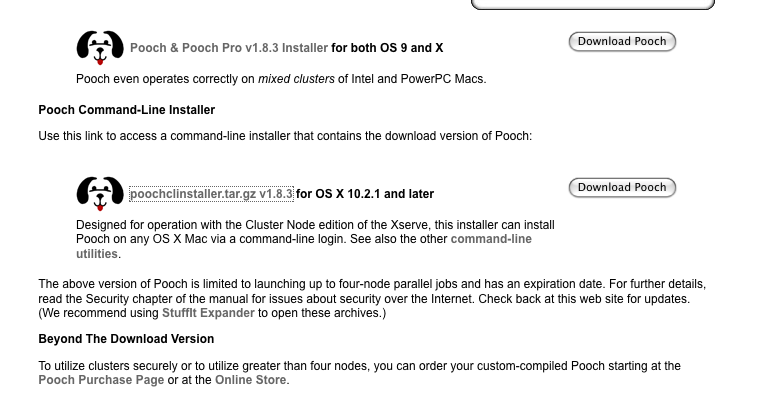
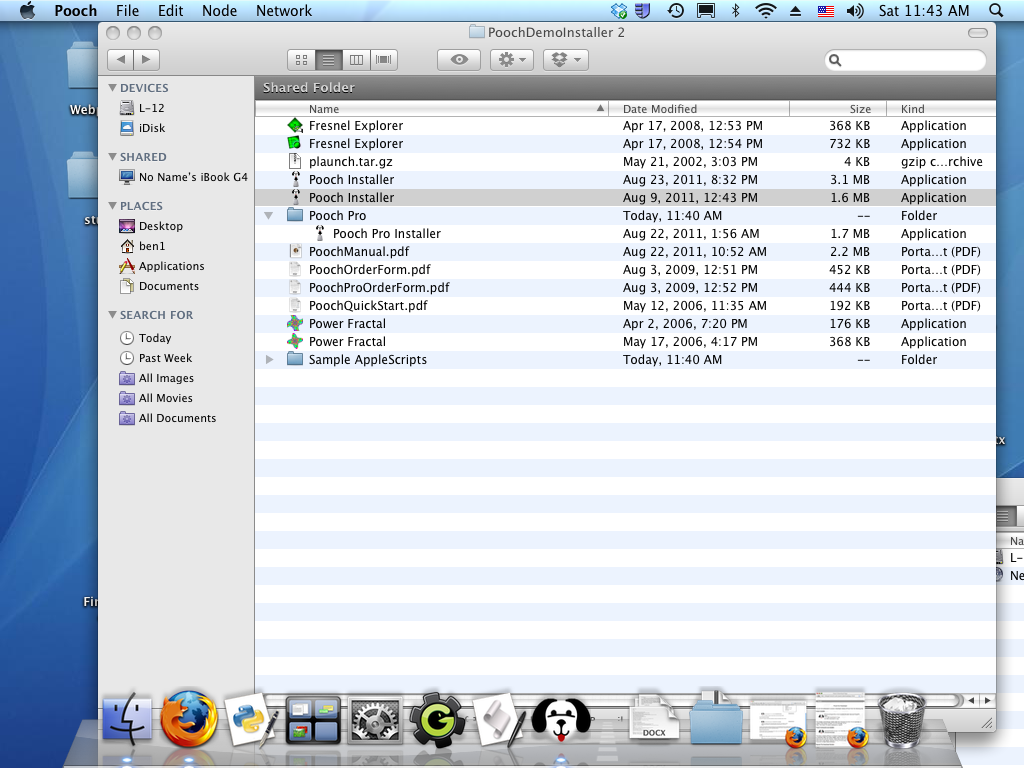
The software is a download from Dauger Research called Pooch. It is available for free at http://daugerresearch.com/pooch/download.shtml for up to 4 computers
Click to download the appropriate version onto one computer. Since my imacs were running OSX 10.5 I used the second download.
Open the folder that you have downloaded called "PoochDemoInstaller". Inside click on the "Pooch Installer" and run it to download Pooch onto your computer.
Next drag and drop the "PoochDemoInstaller" folder onto the USB and copy it onto each of your other three computers and run the "Pooch Installer" on each.
The free version of Pooch only allows you to run 4 computer clusters, but you can buy software from Dauger Research that will incorporate as many computers as you are willing to pay for.
Click to download the appropriate version onto one computer. Since my imacs were running OSX 10.5 I used the second download.
Open the folder that you have downloaded called "PoochDemoInstaller". Inside click on the "Pooch Installer" and run it to download Pooch onto your computer.
Next drag and drop the "PoochDemoInstaller" folder onto the USB and copy it onto each of your other three computers and run the "Pooch Installer" on each.
The free version of Pooch only allows you to run 4 computer clusters, but you can buy software from Dauger Research that will incorporate as many computers as you are willing to pay for.
Remotely Control the Imacs
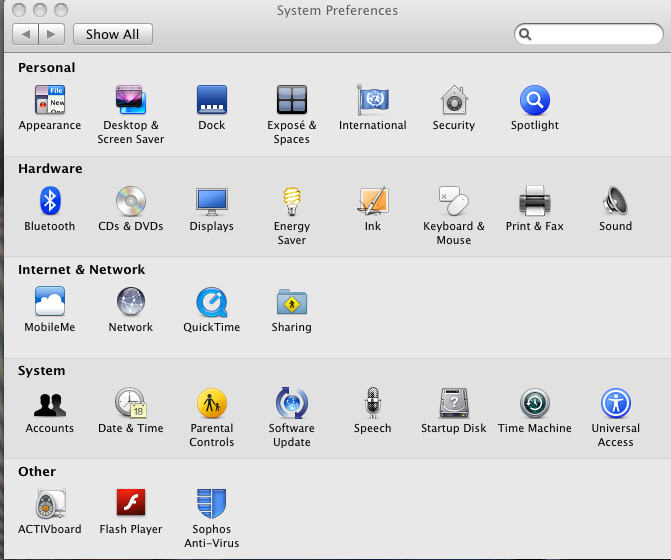
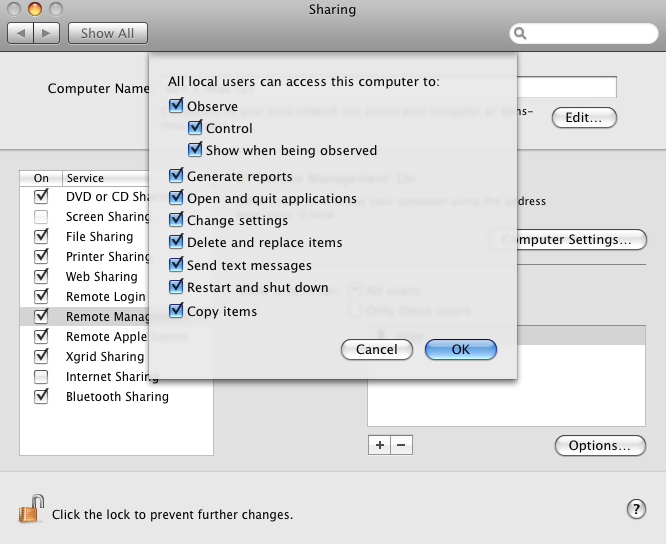
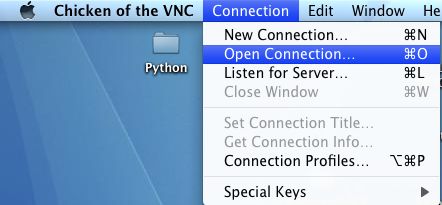
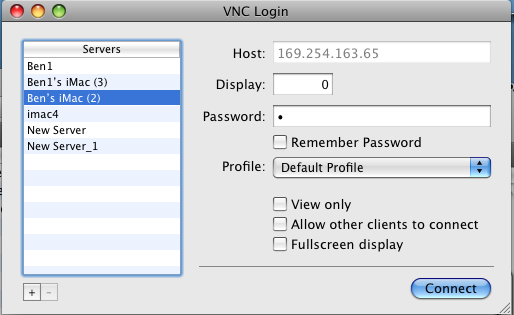
In my case it was a pain to unplug and reconnect the monitor, keyboard, and mouse every time I needed to make a change on one of the imacs. To fix this I downloaded remote desktop software called Chicken of the VNC. This is available at http://sourceforge.net/projects/cotvnc/ .
This download only needs to be put onto one computer and in my case the imac that the monitor is connected to.
First, though, you need to configure each imac so that Chicken of the VNC works. Click on system preferences and then sharing.
Check remote management and then check all the boxes in the first below picture so that you can make changes remotely. Next go into VNC settings and check the box to allow VNC and then select a password in the appropriate box to the right.
To use Chicken of the VNC open it from the applications folder and move it onto the toolbar for convenient use. Once you have opened it at the top of the screen there will be a bar with the option to click on "Connection" click it then click "Open Connection". A window will open that at the top says "VNC Login". Pick the computer you want to remotely control, enter the appropriate password, and click "Connect". A window will open on your screen. This window will contain the screen of the computer you are controlling and you can then go in and open things, makes changes, and so on.
This download only needs to be put onto one computer and in my case the imac that the monitor is connected to.
First, though, you need to configure each imac so that Chicken of the VNC works. Click on system preferences and then sharing.
Check remote management and then check all the boxes in the first below picture so that you can make changes remotely. Next go into VNC settings and check the box to allow VNC and then select a password in the appropriate box to the right.
To use Chicken of the VNC open it from the applications folder and move it onto the toolbar for convenient use. Once you have opened it at the top of the screen there will be a bar with the option to click on "Connection" click it then click "Open Connection". A window will open that at the top says "VNC Login". Pick the computer you want to remotely control, enter the appropriate password, and click "Connect". A window will open on your screen. This window will contain the screen of the computer you are controlling and you can then go in and open things, makes changes, and so on.
Use the Cluster!
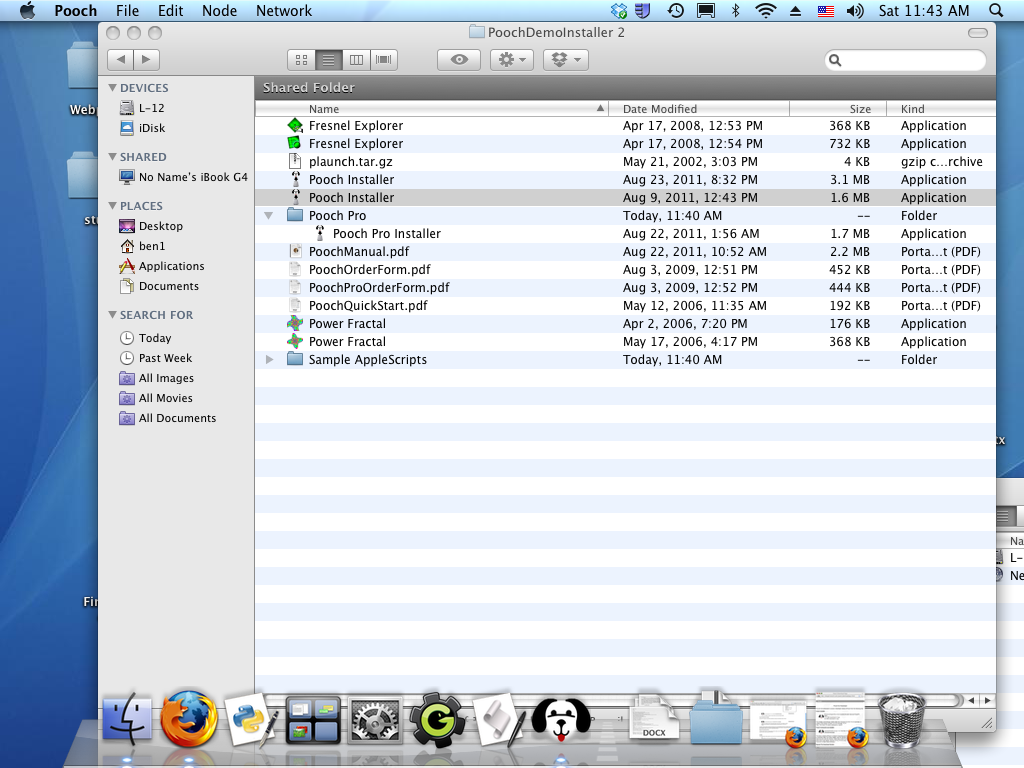
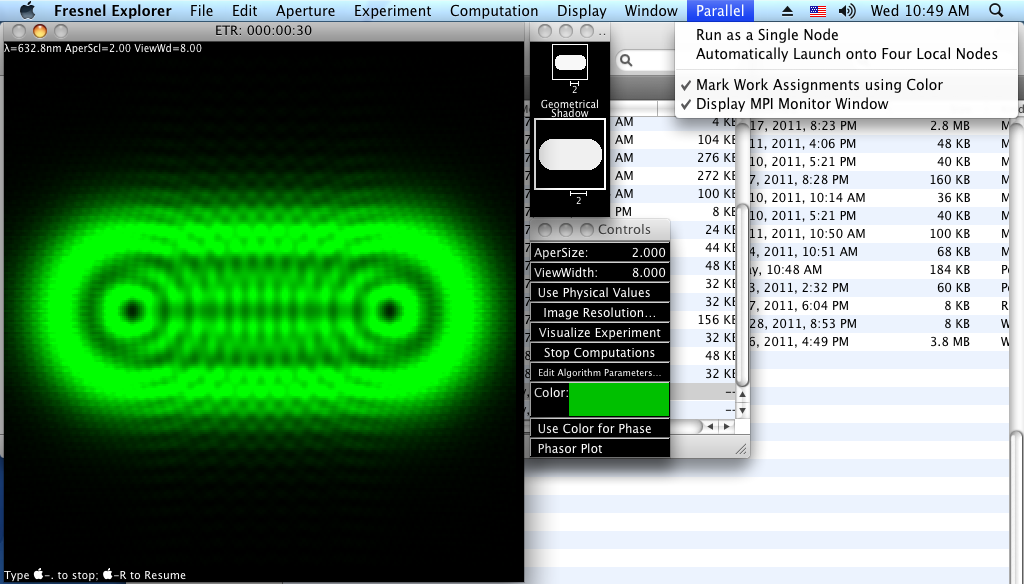
Open an application that is supported by Pooch such as "Fresnel Explorer". A list of support applications is available at http://daugerresearch.com/pooch/parallelapps.shtml . You can also write your own applications to run on Pooch.
Once you have opened "Fresnel Explorer" click on "Parallel" at the top of the screen. Then click "Automatically Launch onto Four Local Nodes". Congratulations! You now have a working cluster and have run an application on it. Try running the application just on one computer, then use the "Parallel" option and watch the time it takes to load dramatically drop.
Once you have opened "Fresnel Explorer" click on "Parallel" at the top of the screen. Then click "Automatically Launch onto Four Local Nodes". Congratulations! You now have a working cluster and have run an application on it. Try running the application just on one computer, then use the "Parallel" option and watch the time it takes to load dramatically drop.